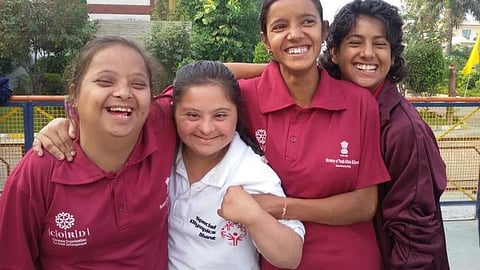
- News
- Campus
- Exam
- Podcast
- Web Stories
- Do You Know
- Path Finders - UG Programs
- Videos
- Élitscape

In March 2017, India ended their campaign at the Special Olympics World Winter Games with 73 medals, 37 of them were gold. For most of the athletes, if not all, this was something they had never even dreamt of. Being disabled, the opportunities are far lesser for them than for other athletes. But thanks to Special Olympics Bharat (SOB) under the aegis of Special Olympics International, thousands of intellectually disabled kids across the country have been given the opportunity to live their dreams. Simon Koh, Regional President, and Managing Director, Special Olympics Asia Pacific Region tells us about the organisation and their recent training programme for coaches. Excerpts:
What is the programme about?
It is basically a child outreach programme. We trained coaches in India. We had also invited coaches from Bhutan, Nepal, Sri Lanka and other South Asian countries. There were about 80 participants. We helped them understand the different play activities that can be used to help intellectually disabled children of the age group 2-7 in areas of motor learning, apart from activities that help them develop social skills. This was not only for children with disabilities but also for those without disabilities because, before the age of four, a lot of children do not know that they have a disability. We gave them an opportunity to be a part of a major activity, that will also be an opportunity for families to be involved in the child’s future.
How exactly are the families involved?
We have three models — special educators model, community model, and the home model. The home model is where the parents and siblings are completely involved in training the child.
How do you go about selecting your candidates?
It is mostly geographic, which means that we ensure that every state in India is given the same level of coaching. These good programmes will enhance the quality of their performance.
How different is it to train a physically challenged child when compared to an intellectually challenged child?
Physically, we are only dealing with mobility issues; their intellect is high and so, it’s quite easy. Whereas intellectually, we’re talking about people with an IQ less than 70. That means two things — you have to be very patient and you have to repeat everything you say. What you teach them today may be forgotten the next day. Families with disabled children knock on every door to get services for their children. So this programme is for such children to help them have that developmental pathway.
Have you seen a shift in parents’ attitude towards sports?
Yes, absolutely. It gives the children a place to grow. It is also a network for families to discuss what is best for their children. India is a large country where travel between states is difficult. So, our family model works really well because they can take complete ownership and they can do it at home. It also builds strong family bonds.
How many athletes have you reached so far?
In India, there are more than a 10,000 athletes and nearly 4,000 schools are involved.
What is the biggest challenge for Special Olympics in India?
Awareness among parents is our biggest challenge. For a lot of families, it is difficult because they tend to become overprotective when they have a disabled child. We prepare them and help them understand how to gain maximum benefit from this, and also convince them that their kids can improve their mobility through this.
